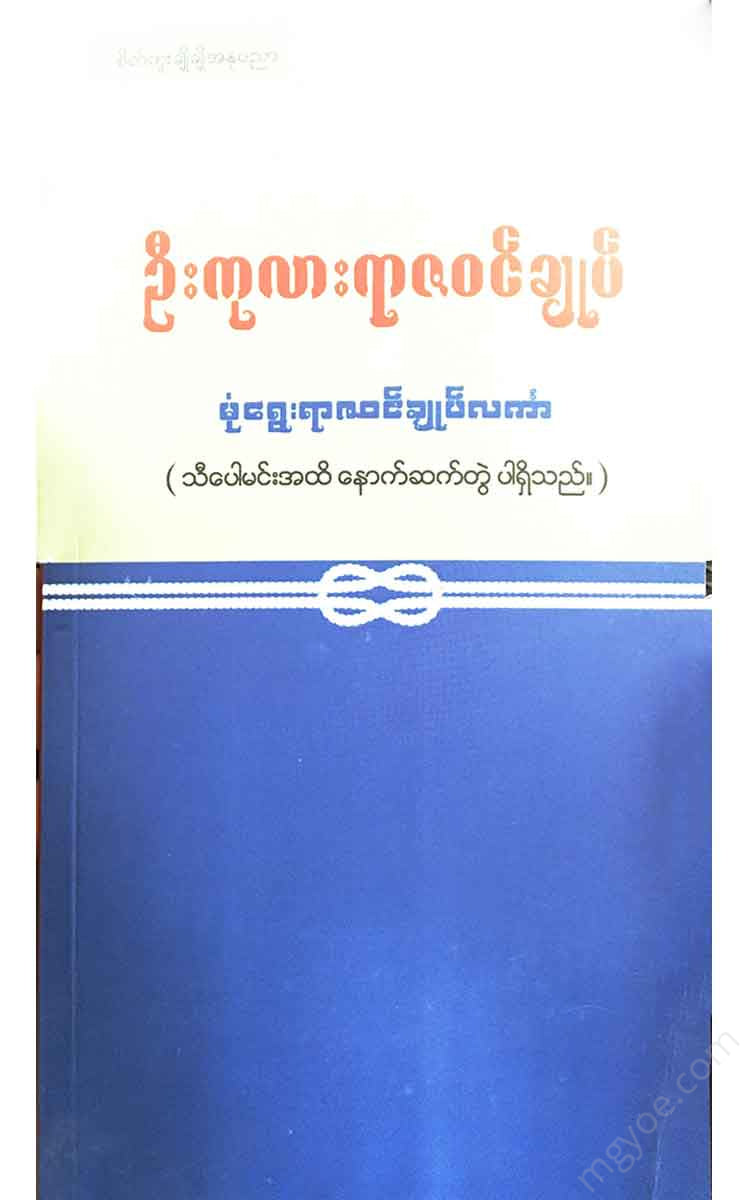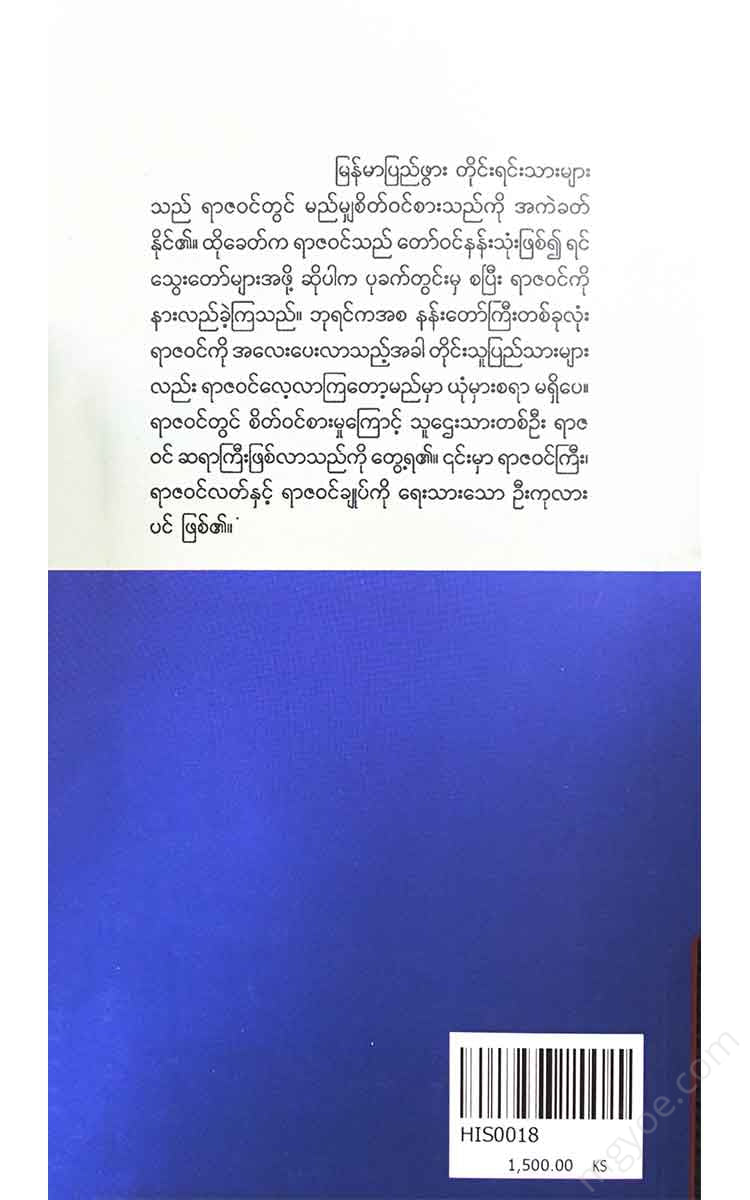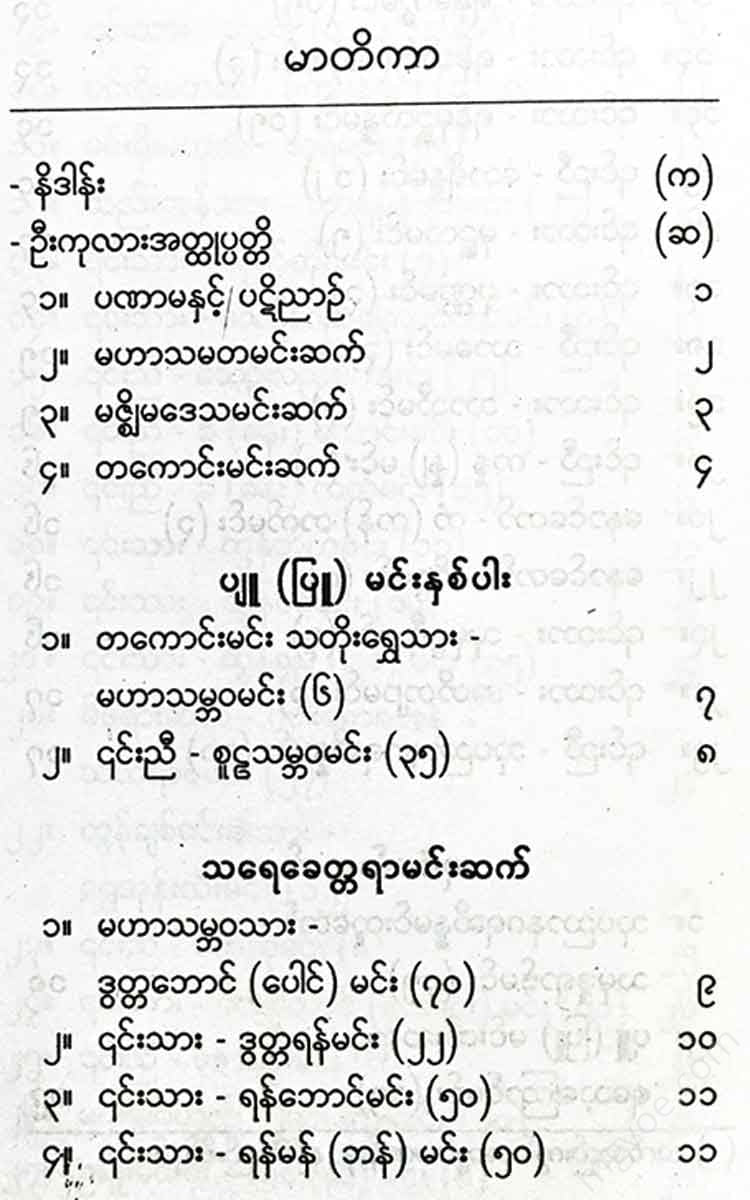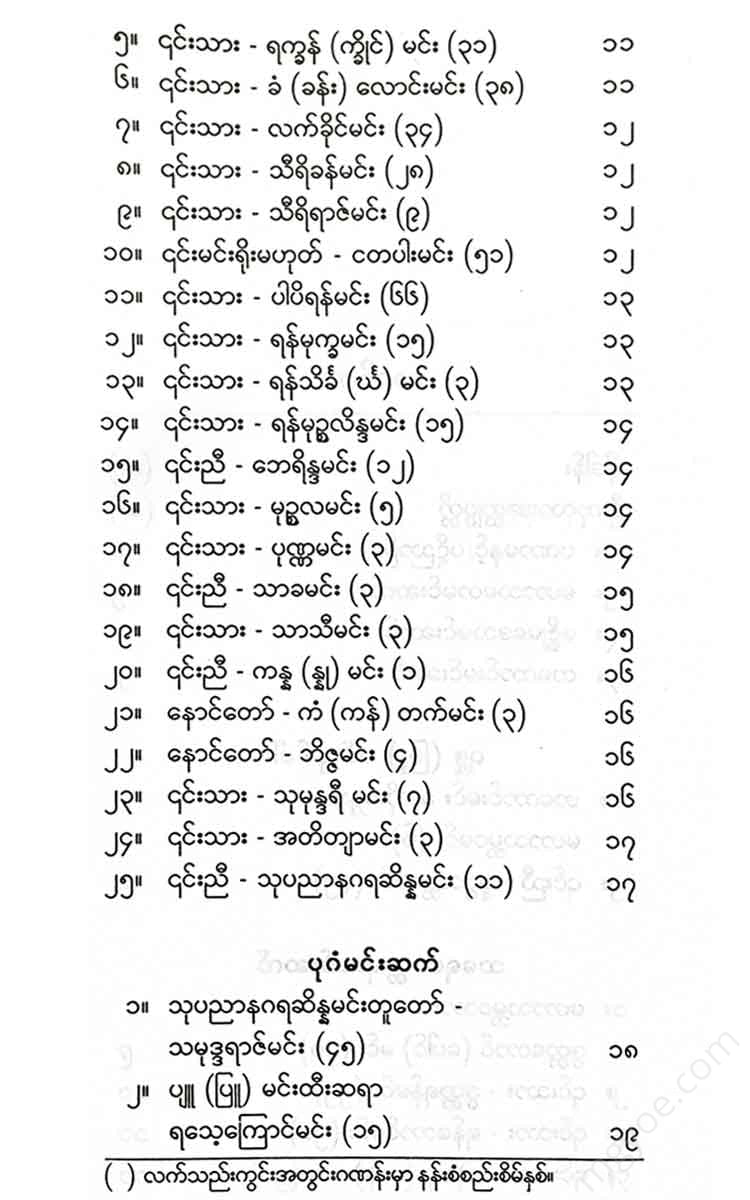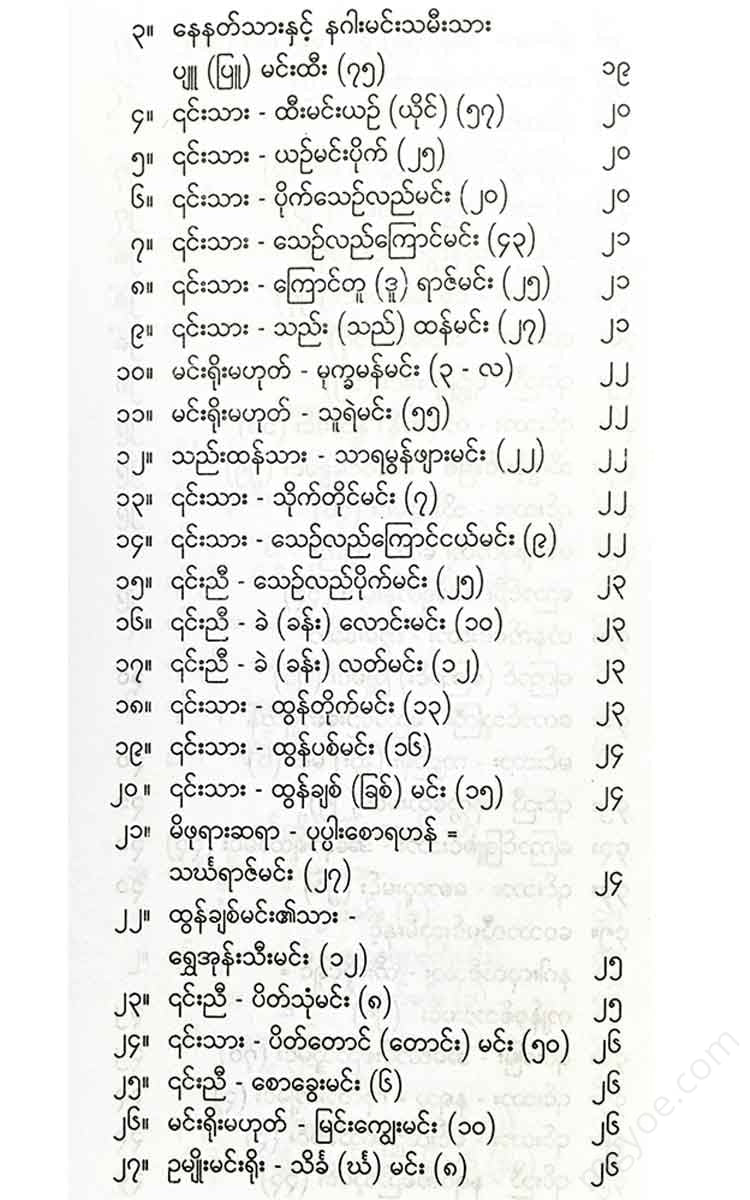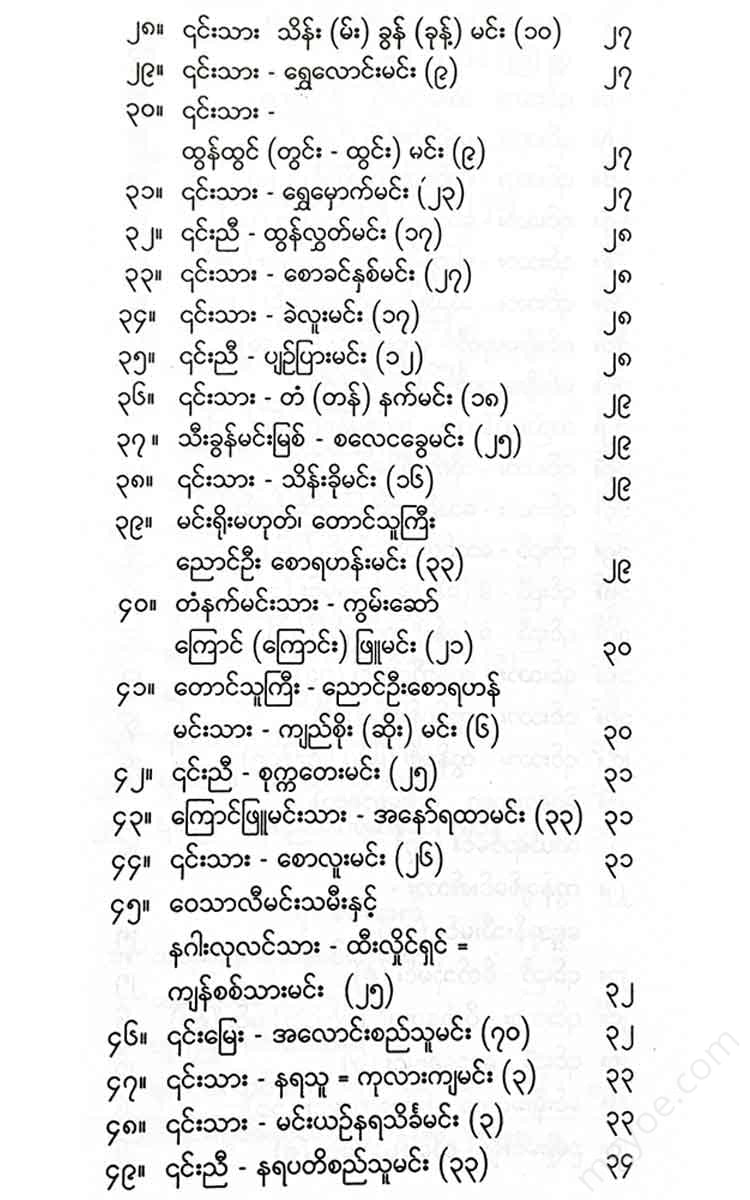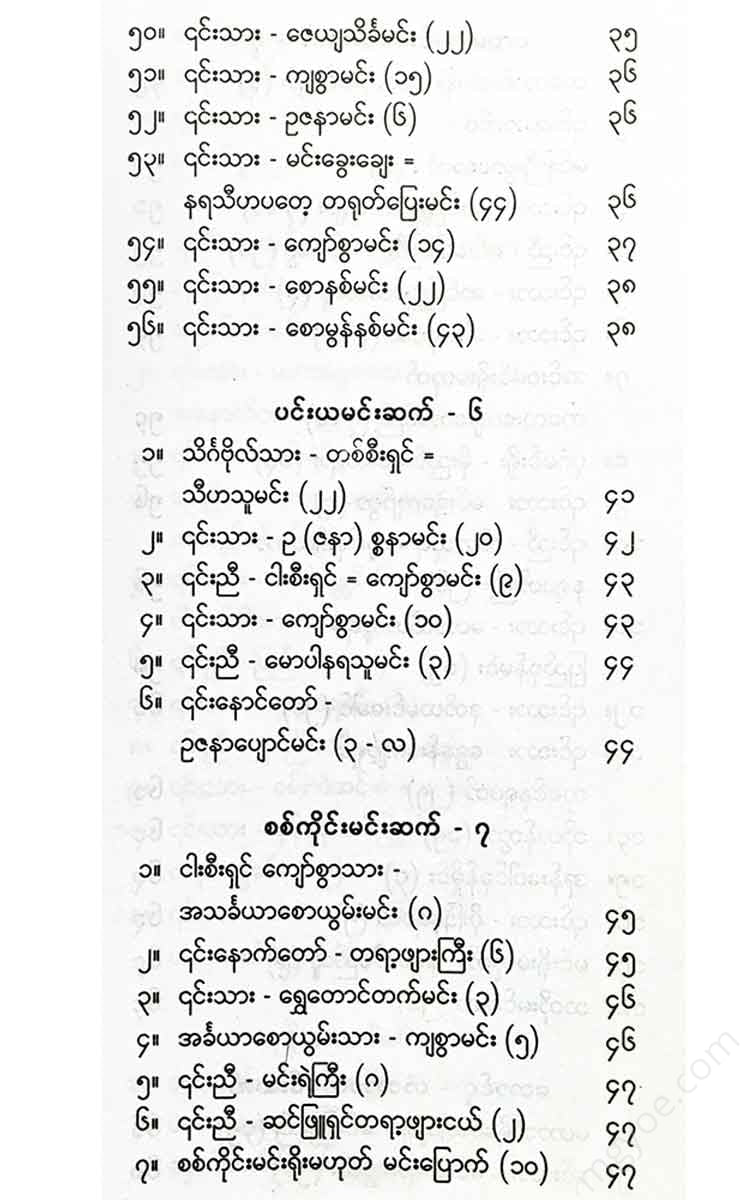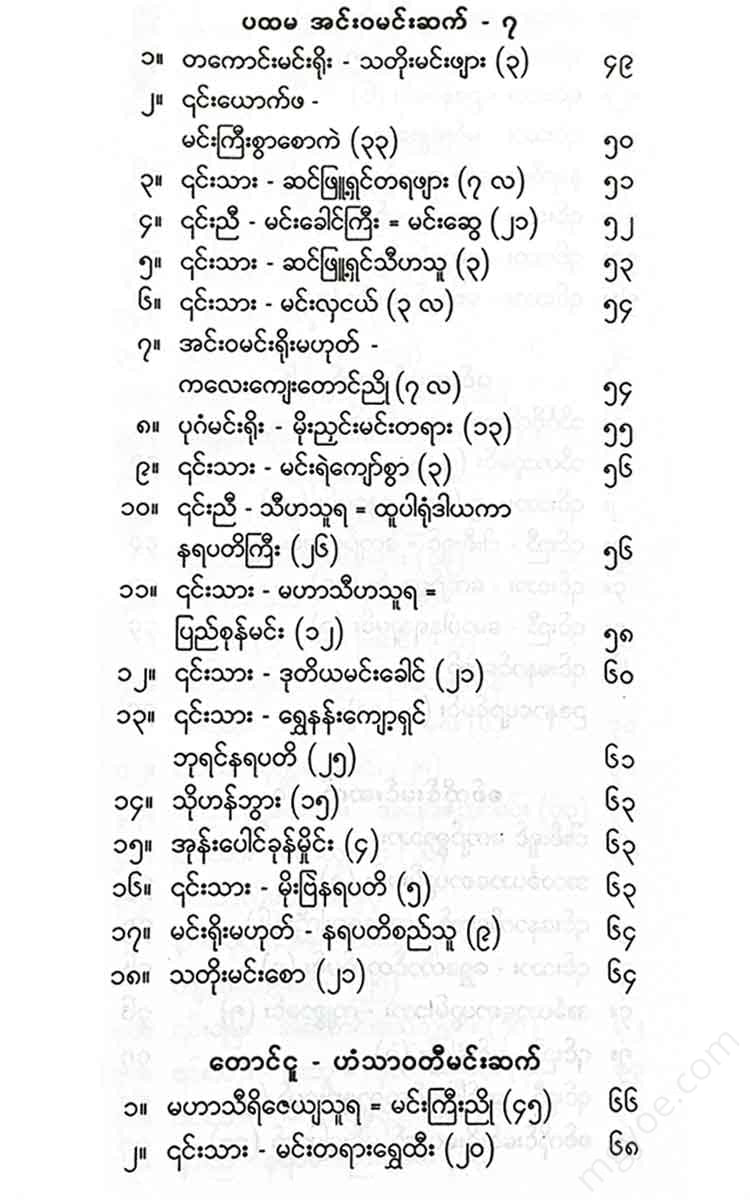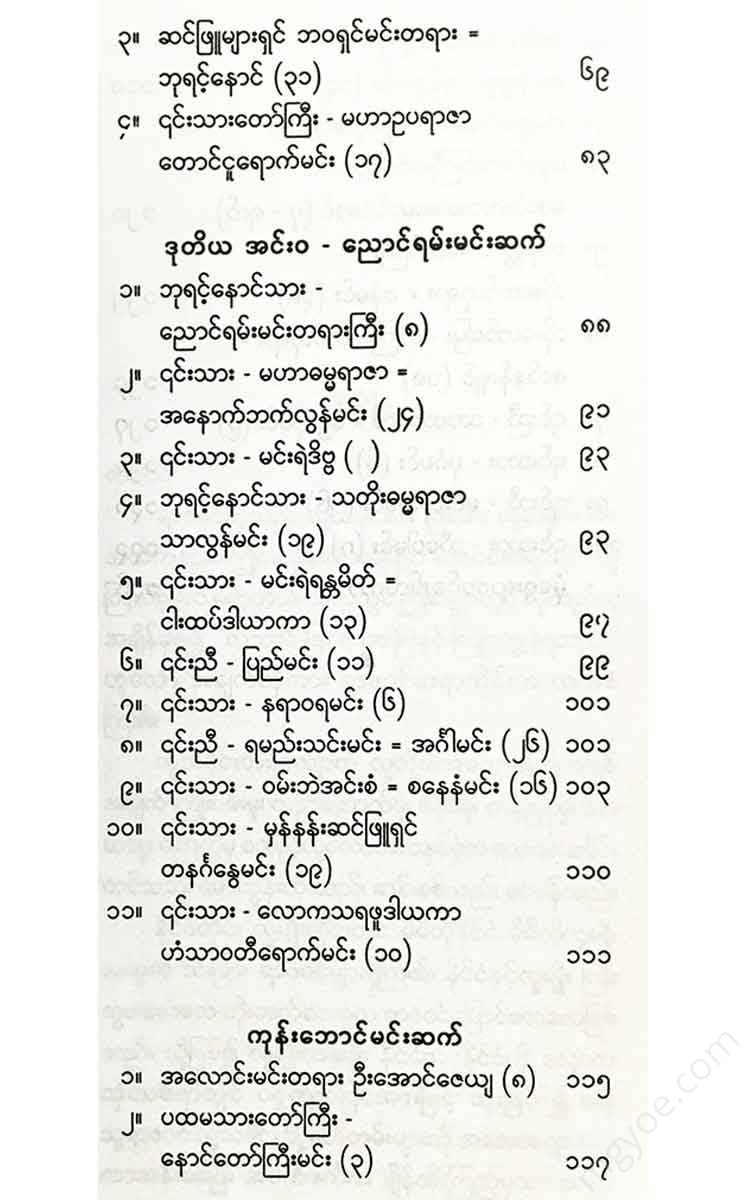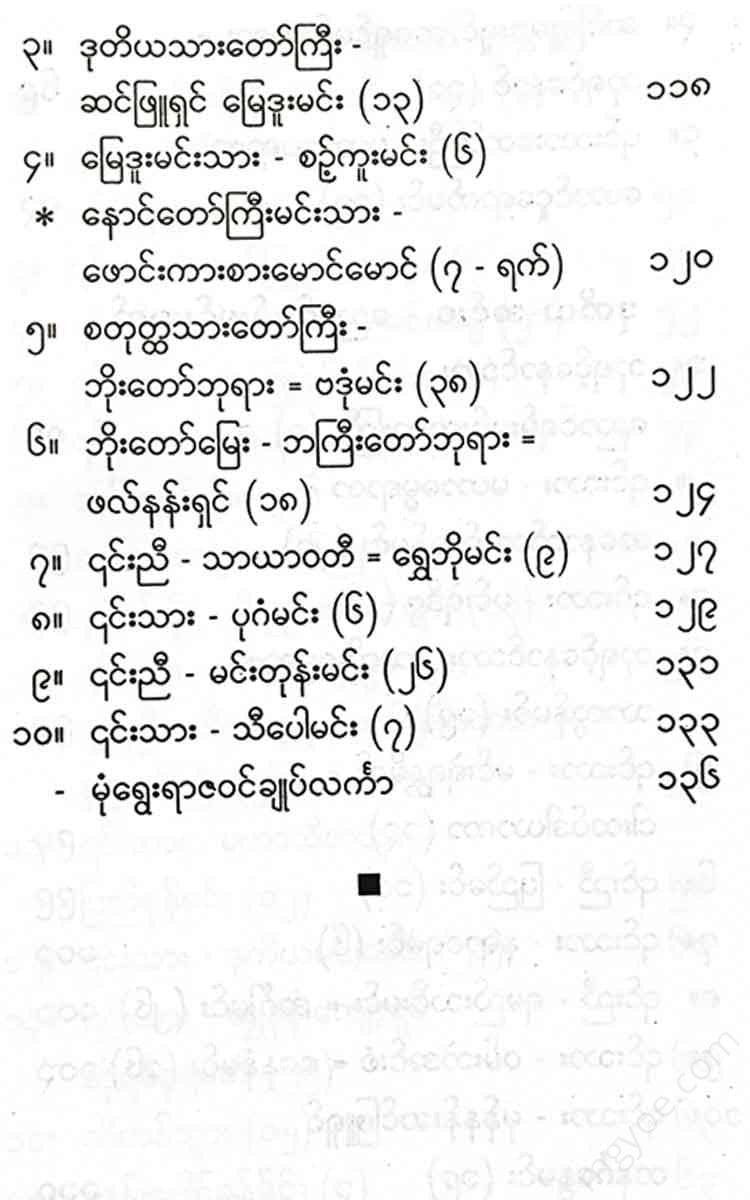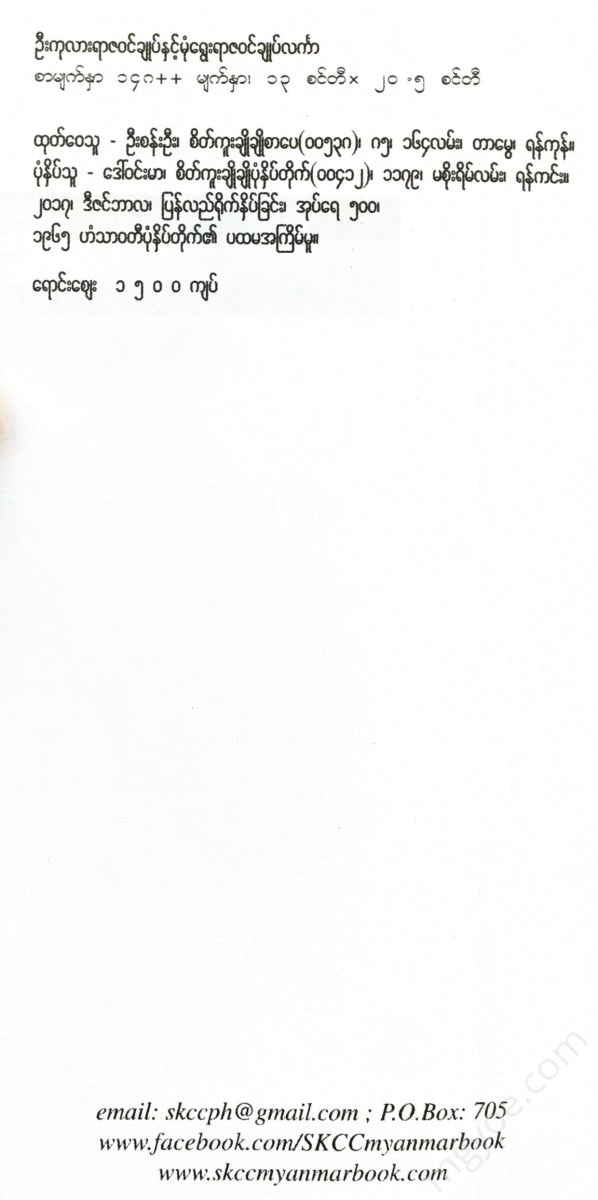စိတ်ကူးချိုချိုစာပေ
U Kala's Chronicle - Mongkol Chronicle Lanka
U Kala's Chronicle - Mongkol Chronicle Lanka
Couldn't load pickup availability
Introduction
History -
History is the history of humanity. Where did human history begin? The answer to this question will not be the same for every historian. However , every historian accepts the fact that since the beginning of man on this earth, "man has encountered various events."
Throughout human history, the human experience of destruction, construction, oppression, resistance, freedom, and destruction has been recorded, archived, analyzed, and criticized by various human systems.
Every country and every nation has its own history. The bigger the country and nation, the more developed its history becomes. Therefore, when studying a nation or a country, one cannot judge it by its own perspective. Only by carefully studying its history, its records, and its records can one see the truth. Therefore, history is like a museum of a country and a museum of a nation.
When you open a history museum, your ancestors who died thousands of years ago come back to life, illustrating their role in the history of the country and people, and the course of their lives.
What they depict is not a play, nor a legend, but real and true. There is no more solid evidence than a history museum. Therefore, what people's lives were like in the past and what legacy they left in the present are in the history museum. We have to study it.
If we study this way, the reality of life will emerge. We will see the ups and downs of the human world, along with the joys and sorrows, as well as the influence of greed, anger, and ignorance. From the great museum of history, we can learn many lessons to learn, to imitate, and to study.
Therefore, some world-renowned figures have advised us to study and understand each other based on history and to build a broad education based on history.
It is true. Without knowing history, it is not easy to understand the nature, nature and taste of literature. As any literature is based on its era, it is said that literature is a mirror of the times.
For example, Anantasura's four-line poem beginning with "One person, the attainment of good" has a historical background.
The full flavor of the four verses of the Lanka can only be fully revealed by referring to the history and knowing how the two brothers, Minyin Naratheinkha and Narapati Sithu, abducted Queen Veluvatty during the Bagan period and became the chief minister of the state.
“The golden country of Inwa, the son of Bagan, the weapon of Burma, when it is destroyed, I like it. My words are not superior, I am stubborn, but the Lord has spoken, the Pitaka, the oral tradition, the disciples, the eternal, the unlearned” is also not fully appreciated if one does not know the historical situation of Burma in the year 888.
Therefore, to understand the nature, essence and taste of literature, we must also see history. Not only literature, but also culture and art must be studied in history. Without history , apart from knowing what kind of building it is, its name, whether it is beautiful or not, the characteristics of history such as what era, what period, what work, what time, what purpose, etc. will not appear.
Therefore, the knowledge of a person without a historical background cannot be 100% complete. Only history can bring us to 100% complete knowledge. When viewed with historical knowledge, things that seem insignificant take on deeper meaning. They become valuable. Researching them increases the enjoyment.
Not only within our own country, but also when traveling abroad, the perspective of someone who has a solid foundation in that country's history is always superior to the perspective of someone who has no foundation in that history.
Moreover, if we compare the events of the time with history, we can not only critically distinguish between right and wrong, but also see examples of how things could have happened, what happened in certain cases, and how things were done in certain cases. We can also foresee the future.
Therefore, the value of history cannot be overestimated. That is why world scholars conduct various researches and strive to create the most complete history.
Myanmar is also doing similar research. Historical research is not new, it has been around since ancient times. The compilation of historical records was encouraged by King Min Myat himself.
The history of the Pitaka is listed as 40 chronicles. There are some chronicles, both major and minor, that are not included in this list. For example, the Mongyul Razhwin Gyi, which consists of 10 lines and 110 verses, written by Mongyul Jetawan Sayadaw, is not included in this book. This Mongyul Razhwin Gyi and the new Dwinthin Razhwin Gyi, which is about 400 pages in paperback and about 100 pages in length, are planned to be published soon by Hanthawaddy.
In addition to these chronicles, the 36 volumes of the Echins listed in the History of the Pitaka and some other records are also chronicles.
This shows how interested the ethnic Burmese were in history. At that time, history was a royal tradition, and the royal family understood it from the cradle. When the king and the entire palace began to pay attention to history, there is no doubt that the people of the country would also study history. Because of his interest in history, a rich man became a historian. He was U Kala, who wrote the Great History, the Short History, and the History of the Nation.
It is seen in the Yannan Chronicle that the authors who compiled the Yannan Chronicle relied heavily on the Yannan Chronicle and the Yannan Chronicle. U Kala wrote the Yannan Chronicle in 1060, during the reign of King Sane Nam, and ended it in 1073, after the death of Prince Sintku. This chronicle was written until King Sane Nam's death in 1075, and concluded in 1079, so it is said that the Yannan Chronicle was written to summarize the Yannan Chronicle after writing the Yannan Chronicle.
The chronicle does not provide detailed descriptions of military operations, locations, and circumstances.
